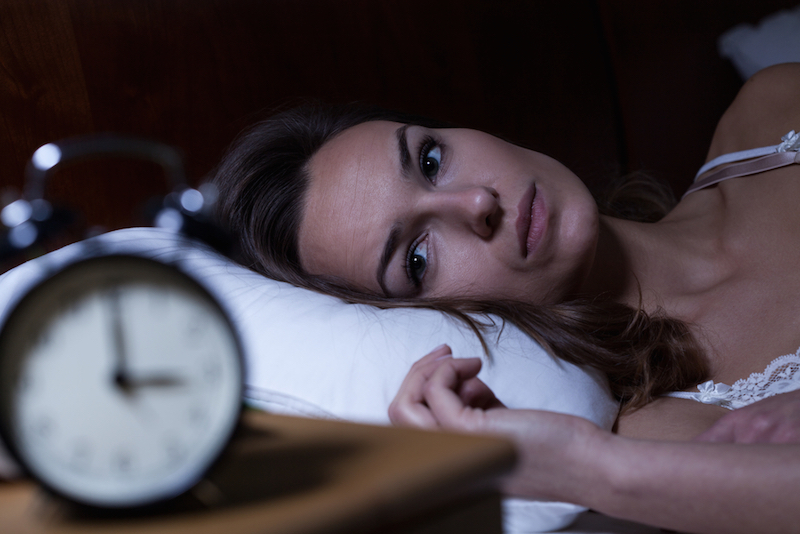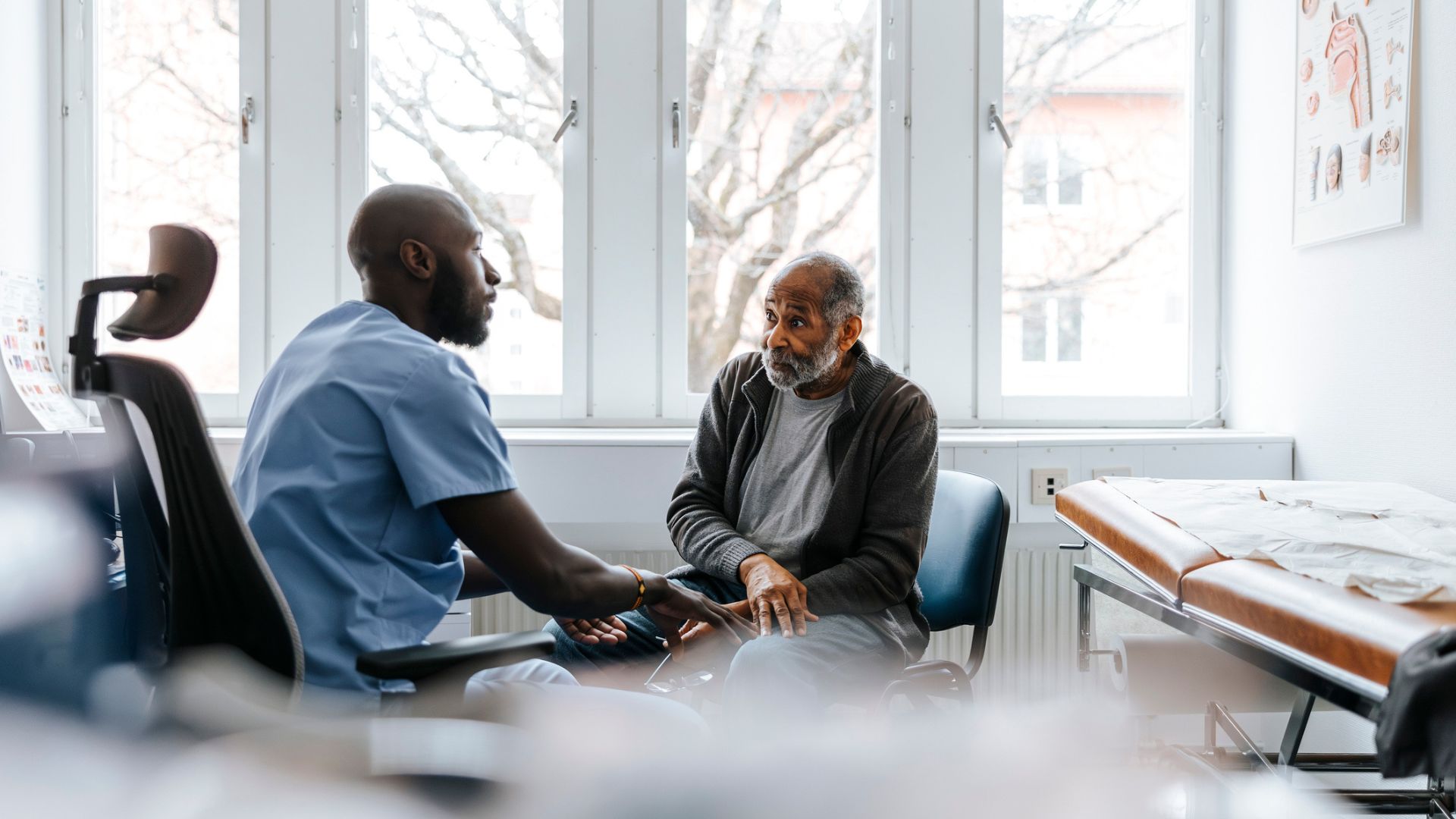The Spooky Effects of Sleep Deprivation

It's no surprise that a night without enough Zzzs can lead to a groggy morning. But bleary eyes and gaping yawns aren't the only things that can happen when your body needs more shut-eye.
Indeed, there are more nightmarish side effects to sleep deprivation.
If a person is deprived of sleep, it can lead to "tremendous emotional problems," said Dr. Steven Feinsilver, the director of the Center for Sleep Medicine at Icahn School of Medicine at Mount Sinai in New York City. "Sleep deprivation has been used as a form of torture," he said. [7 Strange Facts About Insomnia]
There isn't a clear definition of exactly how long a person must go without sleep, or how little sleep a person has to get to be considered sleep-deprived, and different people need different amounts of sleep, so there may be no universal definition of "sleep deprivation." Rather, a person is considered sleep-deprived if they get less sleep than they need to feel awake and alert, researchers say.
But still, research over the years has shown that people can be physically and psychologically damaged from not getting enough sleep, said David Dinges, a professor of psychology and the director of the Unit for Experimental Psychiatry at the University of Pennsylvania.
In fact, the damage is so apparent that it is unethical to coercively deprive someone of sleep, Dinges said. In the studies of sleep deprivation that Dinges and his colleagues conduct in their lab, healthy volunteers are placed in medically safe environments and constantly monitored.
But studying sleep deprivation is important, according to these researchers and others who study the condition. They say that learning what happens in people who are deprived of sleep can help researchers better understand the function of sleep and its importance for both physical and emotional health.
Get the world’s most fascinating discoveries delivered straight to your inbox.
Emotions askew
The problems can start on a somewhat minor scale.
"Clearly, your brain doesn't work very well when you're sleep-deprived," Feinsilver said. Even a low level of sleep deprivation has an impact on cognitive and emotional function, he said.
Dinges explained that some of the first emotional impacts of sleep deprivation involve positive emotions. "When people get sleep-deprived, they don't show positive emotion in their faces," Dinges said. A sleep-deprived person may say they're happy, but they still have a neutral face, he said.
And they won't recognize other people as happy, either. A positive look on someone's face can appear neutral to a sleep-deprived person, and neutral look is often interpreted as a negative look, Dinges said. The sleep-deprived brain may not be as capable of detecting positive emotions as a more rested brain, he said.
And sleep-deprived people also don't tolerate disappointment very well, Dinges added.
Microsleeps
As little as a single night of sleep deprivation can result in a person having a phenomenon called "microsleeps," the next day, Feinsilver said.
A person begins to fall into mini-snooze sessions, which last up to 30 seconds. Some people's eyes remain open during microsleeps, but the disturbing thing about microsleeps is that during sleep, the person is essentially blind, even if their eyes are open, Feinsilver said. They're not processing information, he said.
Studies show that during microsleeps, the brain goes into a sleep state rapidly and uncontrollably, Dinges said. People can force themselves awake, but they will soon fall into another microsleep, he said.
Both Dinges and Feinsilver said that this condition can be incredibly dangerous, especially if you're behind the wheel.
Delirium
People often say they feel loopy after a night of no sleep. But in more extreme cases, losing sleep may cause delirium.
True delirium occurs when a person becomes completely disoriented, Feinsilver said. "Sleep can play a role in that," he said. [5 Things You Must Know About Sleep]
Patients who have been hospitalized in intensive care units — where lights and sounds may continue all day and night — can develop a condition that doctors call "ICU delirium," he said. And while it's unclear if sleep deprivation is the cause of this delirium, doctors do think that loss of sleep is one reason people in the hospital for extended periods develop bizarre behavior, he said.
The worst thing you can do for sleep is put someone is a hospital, Feinsilver added. It's fairly common for for hospitalized patients to develop insomnia, he said.
Hallucinations
Seeing things that aren't there can be a side effect of chronic sleep deprivation, but whether sleep deprivations can induce true hallucinations may be up for debate.
Feinsilver said he personally experienced hallucinations due to sleep deprivation, in October of his first year out of medical school. A newly minted medical resident, Feinsilver said he had been chronically sleep-deprived for several months.
"I [knew] it was October, because I was in the ICU after a night on call," and there was pumpkin by the nurses' station, he said. "I had a very vivid feeling of the pumpkin talking to me," he said.
But Dinges was more skeptical about hallucinations.
"There's no question that misperceptions can occur," Dinges said. When people are very sleepy and performing a task, they may see something flicker in their peripheral vision, or they may think they see blinking lights, but not be sure, he said. All of these are indications that the brain isn't interpreting information clearly, he said.
Can you die of sleep deprivation?
In a famous series of animal experiments, researcher found that total sleep deprivation could kill lab rats.
In 2012, a Chinese man reportedly died after going 11 days without sleep. However, it's unlikely that lack of sleep alone caused his death (other factors likely played a role, such as drinking and smoking).
Of course, studying this phenomenon in humans is difficult – even when you put aside the clear ethical dilemmas.
"Can you die of sleep deprivation? It's not easy," Feinsilver said. "Because you'll fall asleep," he added.
Dinges agreed.
"I don't believe that people can keep themselves awake until they succumb to death," because the drive to sleep turns on, and then continues to turn on, he said. "You can't will yourself to stay awake that long," he said.
Still, there's no question that sleep deprivation has "serious adverse health effects," Dinges said.
"Everything we know about sleep loss is harmful," he said. But — on a more positive note — most of the effects of sleep deprivation dissipate after you sleep, he added.
Follow Sara G. Miller on Twitter @SaraGMiller. Follow Live Science @livescience, Facebook & Google+. Originally published on Live Science.

 Live Science Plus
Live Science Plus





